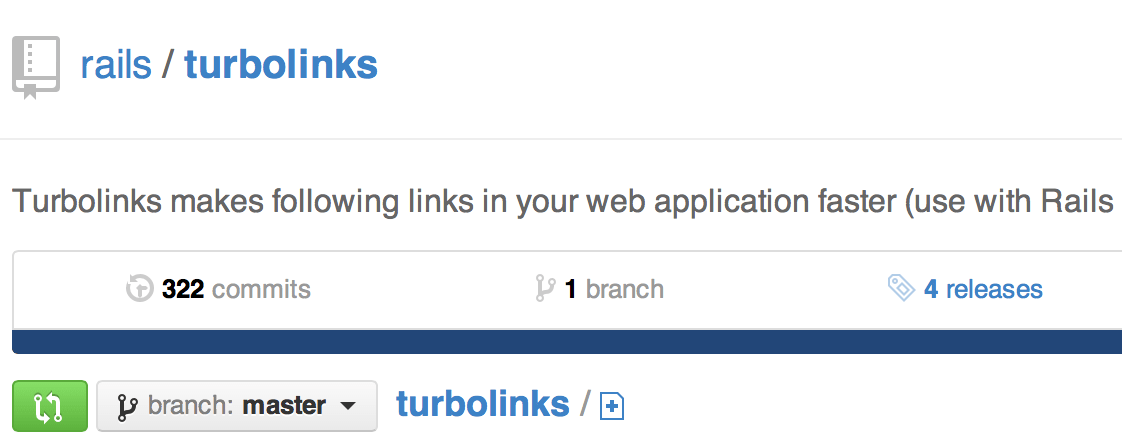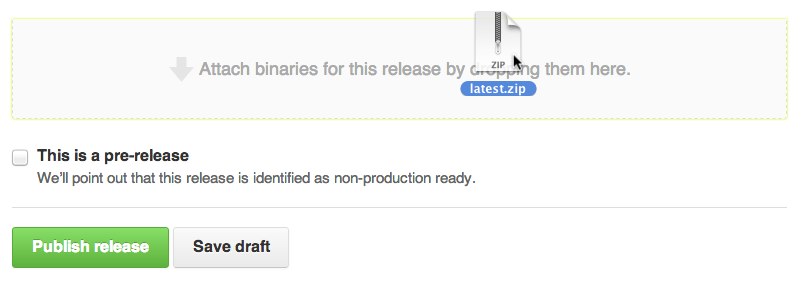Release Your Software
Today, we’re excited to announce Releases, a workflow for shipping software to end users. Releases are first-class objects with changelogs and binary assets that present a full project history beyond…
Today, we’re excited to announce Releases, a workflow for shipping
software to end users. Releases are first-class objects with changelogs
and binary assets that present a full project history beyond Git artifacts.
They’re accessible from a repository’s homepage:

Releases are accompanied by release notes and links to download the software
or source code.

Following the conventions of many Git projects, releases are tied to Git tags.
You can use an existing tag, or let releases create the tag when it’s published.

We recommend projects use Semantic Versioning, but it is
not required.
Creating Releases
As a repository collaborator, you can draft up a changelog in a release’s notes.
Any non-production releases (alphas, betas, release candidates) can be
identified through the pre-release checkbox.

You can also attach binary assets (such as compiled executables,
minified scripts, documentation) to a release. Once published, the
release details and assets are available to anyone that can view the repository.

Happy shipping!
Written by
Related posts

GitHub Availability Report: March 2025
In March, we experienced one incident that resulted in degraded performance across GitHub services.

Vibe coding with GitHub Copilot: Agent mode and MCP support rolling out to all VS Code users
In celebration of MSFT’s 50th anniversary, we’re rolling out Agent Mode with MCP support to all VS Code users. We are also announcing the new GitHub Copilot Pro+ plan w/ premium requests, the general availability of models from Anthropic, Google, and OpenAI, next edit suggestions for code completions & the Copilot code review agent.

GitHub Availability Report: February 2025
In February, we experienced two incidents that resulted in degraded performance across GitHub services.